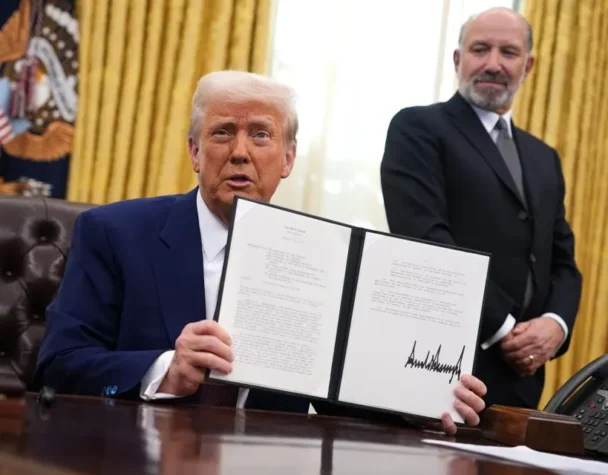
Global Markets Rattle as Trump Tariffs Loom and Recession Fears Mount
Wed, April 02, 2025As Q2 of 2025 begins, both U.S. and international markets are grappling with heightened uncertainty, largely fueled by expectations of sweeping tariffs to be announced by former President Donald Trump. Dubbed “Liberation Day” by Trump and his allies, the proposed trade policy shift threatens to jolt global trade flows and exacerbate fears of a looming recession.
U.S. Markets React to Tariff Turmoil
On the domestic front, Wall Street has shown clear signs of volatility. The S&P 500 closed the first quarter of 2025 down 4.6%, while the Nasdaq Composite plunged 10.5%—its worst quarterly performance since 2022. Investor sentiment has become increasingly cautious, with analysts now projecting a 35% probability of a U.S. recession this year, according to Financial Times.
Driving much of this unease is the anticipation of new tariffs aimed at all U.S. trading partners, with no exemptions. The White House confirmed that the sweeping measures are intended to “restore economic sovereignty” and punish nations that “manipulate trade,” though experts warn the fallout could be severe. The uncertainty surrounding which goods and industries may be affected has led to cautious trading and a decline in business confidence.
Gold prices hit a record high earlier this week, as risk-averse investors sought safe havens. The dollar, meanwhile, continues to show mixed results as markets weigh the potential impact on inflation and interest rates.
International Markets Brace for Ripple Effects
Beyond the U.S., the specter of a global trade war is casting a long shadow. Economists warn that the ripple effects of a 25% tariff regime could slash $1.4 trillion from global GDP if retaliatory measures follow—a scenario drawing comparisons to economic conditions during the Great Depression. As reported by The Guardian, this level of disruption could set off recessionary shocks in multiple regions, especially in export-heavy economies.
Emerging markets are already showing signs of strain. Argentina, for instance, is in talks with the International Monetary Fund to secure a $20 billion stabilization program. While this agreement could offer some relief, the country remains under scrutiny due to stringent currency controls and a fragile financial system.
In the energy sector, Tokyo Gas Co.’s acquisition of a 70% stake in Chevron’s East Texas gas assets for $525 million signals a strategic pivot toward U.S.-based energy resources. This move underscores how some global players are repositioning to mitigate the fallout from potential trade and supply chain disruptions.

